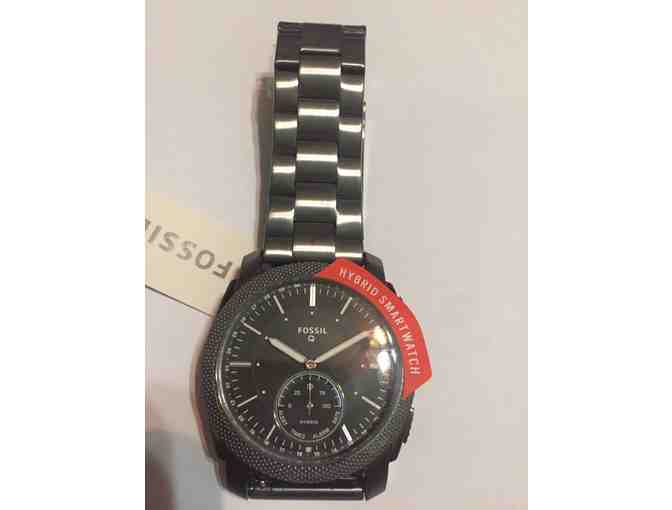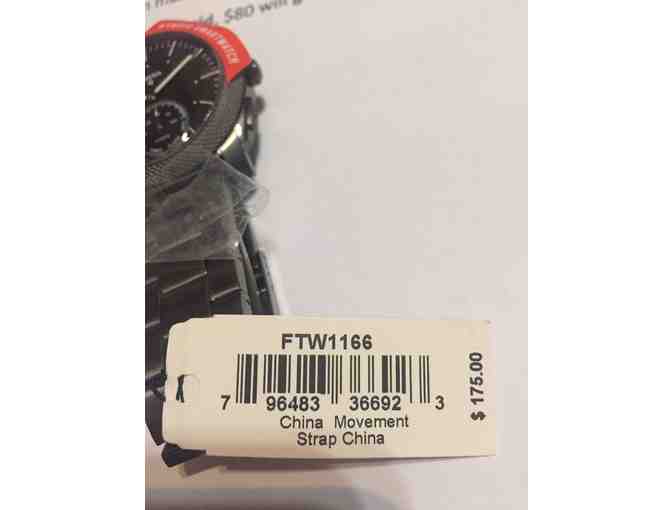Fossil Ftw 1166 Hybrid Smartwatch- Q machine

Item Number: 263
Time Left: CLOSED

Description
Mens 45mm
Heavy
Activity Tracking: Built In Fitness Tracker
Notifications: Social Media / Text / Email / App Alerts / Multiple Time Zones / Alarm Clock / Calendar Alerts
Functions: Take a Picture / Control Your Music / Sleep Tracker / Step Tracker / Interchangeable Watch Band
Connectivity: Bluetooth® Smart Enabled / 4.1 Low Energy
Compatibility: Android™ OS 5.0+, iPhone 5/iOS 9.0+, Smartphone App
Q devices are compatible with iPhone 5 or higher with iOS 9.3+.
Has a water resistance rating of 5ATM.
Item pictured is exact item up for auction Shipping charges apply if not a local pick up.
Special Instructions
Donated by ALS
What is ALS?
ALS, or amyotrophic lateral sclerosis, is a progressive neurodegenerative disease that affects nerve cells in the brain and the spinal cord. A-myo-trophic comes from the Greek language. "A" means no. "Myo" refers to muscle, and "Trophic" means nourishment – "No muscle nourishment." When a muscle has no nourishment, it "atrophies" or wastes away. "Lateral" identifies the areas in a person's spinal cord where portions of the nerve cells that signal and control the muscles are located. As this area degenerates, it leads to scarring or hardening ("sclerosis") in the region.
There are two different types of ALS, sporadic and familial. Sporadic, which is the most common form of the disease in the U.S., accounts for 90 to 95 percent of all cases. It may affect anyone, anywhere. Familial ALS (FALS) accounts for 5 to 10 percent of all cases in the U.S. Familial ALS means the disease is inherited. In those families, there is a 50% chance each offspring will inherit the gene mutation and may develop the disease. French neurologist Jean-Martin Charcot discovered the disease in 1869.
Although there is not yet a cure or treatment that halts or reverses ALS, scientists have made significant progress in learning more about this disease. In addition, people with ALS may experience a better quality of life in living with the disease by participating in support groups and attending an ALS Association Certified Treatment Center of Excellence or a Recognized Treatment Center. Such Centers provide a national standard of best-practice multidisciplinary care to help manage the symptoms of the disease and assist people living with ALS to maintain as much independence as possible for as long as possible.